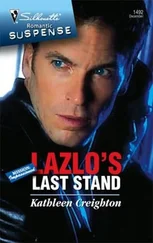The Major had considered finding himself a new solicitor but had not wanted to break with his own family’s tradition. In more honest moments, he admitted to himself that he had not wanted to face telling Mortimer. Instead, he had reminded himself that Mortimer had done nothing but excellent work, which was true, and that it was uncharitable to dislike a man for wearing purple spotted pocket squares and having sweaty palms.
“Ah, Major, so nice to see you even under such sad, sad conditions,” said Mortimer, advancing across the deep green office carpet to clasp the Major’s hand.
“Thank you.”
“Your brother was a fine, fine man and it was a privilege to call him a friend.” Mortimer threw a glance at the wall, where pictures of himself with various local officials and minor dignitaries were hung in gilded frames. “I was telling Marjorie only yesterday that he was a man who could have achieved much prominence if he had had the inclination.”
“My brother shared Mr. Tewkesbury’s dislike of local politics,” said the Major.
“Quite right,” said Mortimer, settling back down at his mahogany desk and waving at a club chair. “It’s an appalling mess. I keep telling Elizabeth I would resign completely if they would let me.” The Major said nothing. “Well, let’s get this started, shall we?” He took a thin cream-colored file from a desk drawer and slid it across the vast expanse between them. As he reached, his plump wrists strained out of his stiff white cuffs and his jacket wrinkled up about his shoulders. He opened the file with his thick fingertips and turned it around to face the Major. Light finger marks now decorated the plain typed page headed “Last Will and Testament of Robert Carroll Pettigrew.”
“As you know, Bertie has named you the executor of this will. If you are willing to serve in this capacity, I will have some forms for you to sign. As executor, you will have a couple of charitable bequests and small investment accounts to oversee. Nothing too arduous. As executor you are traditionally entitled to a small compensation, expenses and so forth, but you may wish to waive that…”
“I’ll just read it, then, shall I?” said the Major.
“Of course, of course. Just take your time.” Mortimer sat back and laced his hands across his bulging waistcoat as if preparing to take a nap, but his eyes remained sharply focused across the desk. The Major stood up.
“I’ll just take it over here and get some light on it,” he said. It was only a matter of feet to the large window overlooking the square, but the few paces created some imagined privacy.
Bertie’s will was only a page and a half, with plenty of white space between the lines. His possessions were transferred to his loving wife and he asked his brother to be his executor in order to relieve her of administrative burdens during a difficult time. There was a small investment account set up for Gregory and any other grandchildren who might arrive later. There were also bequests to three charities: their old prep school got a thousand pounds and both Bertie’s church and the parish church of St. Mary’s C of E at Edgecombe St. Mary received two thousand. The Major chuckled to see Bertie, who had long ago acceded to Marjorie and become an active Presbyterian, hedging his bets with the Almighty. When he finished reading, the Major went back and read the will again, to make sure he hadn’t missed a paragraph. Then he just pretended to be reading, in order to give himself time to quell his confusion.
The will made no mention of any bequests of personal items, to anyone, offering only a single line: “My wife may dispose of any and all personal effects as she deems fit. She knows my wishes in these matters.” This bluntness was out of keeping with the rest of the document; in its few words, the Major sensed both his brother’s capitulation to his wife and a coded apology to himself. “She knows my wishes,” he read again.
“Ah, tea; thank you, Mary.” Mortimer broke his careful silence as the thin girl who worked as secretary came in with a small gilt tray containing two cups of tea in bone china mugs and a plate with two dry biscuits. “Is the milk fresh?” he fussed, his voice signaling that it was high time Pettigrew finished his reading and got down to business. The Major turned reluctantly from the window.
“Are there not a couple of omissions?” he enquired at last.
“I think you’ll find all the required language is there,” said Mortimer. The Major could see he had no intention of helping smooth over the awkwardness of asking about the Major’s own interests.
“As you know, there is the matter of my father’s sporting guns,” he said. He could feel his face flushing with heat, but he was determined to be direct. “It was understood by all, of course, that the guns were to be reunited upon the death of either one of us.”
“Ah,” said Mortimer slowly.
“I was under the impression that Bertie’s will would contain explicit directions in this matter-as my own will does.” He stared hard. Mortimer put down his tea with care and pressed his fingertips together. He sighed.
“As you can see,” he said, “no such provision was included. I did urge Bertie to be as specific as possible about any items of value that he might wish to pass on…” His voice trailed off.
“Those guns were passed on to us in trust by my father,” the Major said, drawing himself up as far as possible. “It was his dying wish that we share in them during our lifetimes and that we reunite them to pass on down the generations. You know this as well as I.”
“Yes, that has always been my understanding,” agreed Mortimer. “However, since your father gave you the guns in person, during his illness, there was no such direction in his will and therefore no obligation…”
“But I’m sure Bertie put it in his will,” he said, annoyed to find a begging tone creeping into his voice. Mortimer did not answer at once. He gazed up at the brass chandelier as if searching for the exact parsing of his next words.
“I can say very little,” he finally offered. “Let us say only that, in the broadest sense possible, the leaving of any specific assets away from a spouse may become an issue of loyalty for some couples.” He grimaced in conspiratorial fashion and the Major caught the faintest echo of Marjorie’s shrill voice ringing off the plain paneling of the office.
“My sister-in-law…?” he began. Mortimer held up a palm to stop him.
“I cannot make any comment on client discussions or enter into any suppositions, however hypothetical,” he said. “I can only say how sorry it makes me when my hands are so tied that I cannot even warn a good client that he should perhaps consider altering his own will.”
“Everyone knows that gun is mine,” said the Major. He was hurt and angry to the point of feeling faint. “It should have been mine in the first place, you know-oldest son and all that. Not that I ever begrudged Bertie his share, only he never was a shooting man.”
“Well, I think you should have a friendly chat with Marjorie about it,” said Mortimer. “I’m sure she would want to work out something. Perhaps we should hold off finalizing the executor position until this is sorted out?”
“I know my duty,” said the Major. “I will do as my brother asked of me regardless of this matter.”
“Yes, I’m sure,” said Mortimer. “Only it might be considered a conflict of interest were you to intend any claim against the estate.”
“You mean go to court?” said the Major. “I wouldn’t dream of dragging the Pettigrew name so low.”
“I never thought you would,” said Mortimer. “It would have been terribly awkward having to represent one side of the family against the other. Not at all in the Tewkesbury and Teale tradition.” He smiled, and the Major had the suspicion that Mortimer would love to represent Marjorie against him and would use every scrap of prior knowledge about the family to win.
Читать дальше












